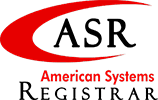Best Mobile Electropolishing | Tulsa, OK | Get A Quote
We offer some of the best mobile electropolishing and passivation services to Tulsa, OK. Cust. Satisfaction guaranteed. 30 years in business. Call for a quote.
Tulsa is the second-largest city in the State of Oklahoma and 47th-most populous city in the United States. As of July 2013 the population was 398,121, an increase of 6,215 over that reported in the 2010 Census. It is the principal municipality of the Tulsa Metropolitan Area, a region with 961,561 residents in the MSA and 1,131,458 in the CSA. The city serves as the county seat of Tulsa County, the most densely populated county in Oklahoma, and extends into Osage, Rogers, and Wagoner counties.
Tulsa was first settled between 1828 and 1836 by the Lochapoka Band of Creek Native American tribe. For most of the 20th century, the city held the nickname “Oil Capital of the World” and played a major role as one of the most important hubs for the American oil industry.
Once heavily dependent on the oil industry, economic downturn and subsequent diversification efforts created an economic base in the energy, finance, aviation, telecommunications and technology sectors. The Tulsa Port of Catoosa, at the head of the McClellan-Kerr Arkansas River Navigation System, is the most inland river port in the U.S. with access to international waterways. Two institutions of higher education within the city have sports teams at the NCAA Division I level, Oral Roberts University and the University of Tulsa.
It is situated on the Arkansas River at the foothills of the Ozark Mountains in northeast Oklahoma, a region of the state known as “Green Country”. Considered the cultural and arts center of Oklahoma, Tulsa houses two world-renowned art museums, full-time professional opera and ballet companies, and one of the nation’s largest concentrations of art deco architecture.
The city has been called one of America’s most livable large cities by Partners for Livable Communities, Forbes, and Relocate America. FDi Magazine in 2009 ranked the city no. 8 in the U.S. for cities of the future. In 2012, Tulsa was ranked among the top 50 best cities in the United States by BusinessWeek. People from Tulsa are called “Tulsans”.
Tulsa’s central location in the United States makes it a desirable place to locate nearly any type of business, from manufacturing to retail, telecommunications, and service-oriented industries. Operating costs generally run well below the national average. According to a 2004 study published by Forbes magazine, the Tulsa metropolitan area ranks as the third lowest metro area in terms of cost-of-living in the United States.
Tulsa was literally the “Oil Capital of the World” from the early 1920s until World War II. By the time the companies moved operations closer to offshore production, Tulsa had begun to develop the aircraft and aerospace industry, which is now the region’s largest industry.
Today Tulsa has more than 300 aviation-related companies, contributing to more than 32,000 Tulsa jobs and 140,000 statewide jobs in aviation. The industry generates $960 million in annual payroll and contributes an additional $3.3 billion annually to the region. In addition, two insurance companies are major employers, as are major manufacturers such as Ford Glass and Whirlpool.
Three car rental company headquarters and a major car rental reservation center are located in Tulsa. Telecommunications is also a major industry, employing about 15,000 people annually.
In early 1971, Tulsa opened the Tulsa Port of Catoosa on the Verdigris River, thereby becoming a major inland port along the 445-mile McClellan-Kerr Navigation System. The port provides low-cost shipping for such products as oil, coal, fertilizer, and grain to the Mississippi River, and from there on to the Great Lakes or the Gulf of Mexico and around the world.
In 2004 the Tulsa Metropolitan Statistical Area (MSA) had a gross product of $27.1 billion, about one-third of the Oklahoma economy. Healthcare has become big business in Tulsa, employing over 30,000 people and contributing $1.4 billion in payroll income to the Tulsa economy. Employment figures reveal Tulsa industries as major employers on the national scene.
The Tulsa MSA ranks nationally in the areas of aircraft engines and aircraft, ranked 6th and 17th respectively; oil and gas products and services, ranked 7th; fabricated platework, ranked 2nd; metal pumps, ranked 4th; and hoists and cranes, fabricated metal pipe, and laundry and cleaning appliances all ranked 3rd.
Items and goods produced are airplane parts, appliances, metal pipes and pumps, fiber optics, meat, feed, boilers, burners, fishing rods, natural gas.
